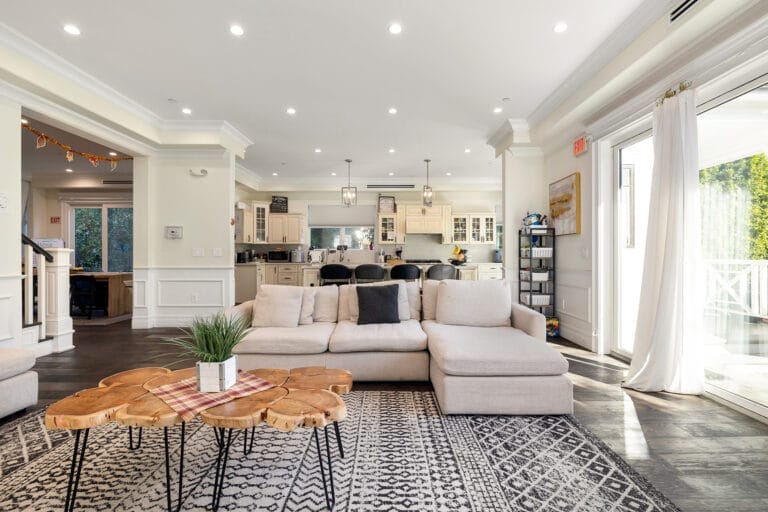- About Us

Get to know us
- Locations
- Treatment

Who We Treat
- Contact Us


Comprehensive behavioral health treatment facilities for adults in a safe and comforting atmosphere in Southern California.


Also known as family counseling, family therapy is a form of psychotherapy. It focuses on building and maintaining healthy family relationships. Family therapy promotes understanding and working together to problem solve. It does not view an issue as merely the individual’s problem, but as something that affects the whole family unit. In family therapy, family members will learn how to communicate their needs and how to support each other.
Some people feel like seeking help from a therapist is a sign of weakness. However, it is actually the total opposite. It takes strength to admit that the problem is bigger than someone and they can handle it without help. In conclusion, if someone that proud person who strives to appear perfect to the outside world, it’s best to remember that their family is more important than pride.
Family therapy in helps with the following:
When a person has reached the end of their rope or is just ready to give up on living a happy family, take 1 last step and reach out for help. If members of their family are experiencing any of the following symptoms, then it is time to reach out for help today.
A family therapist is trained to play many roles when treating a family. Because of the many roles they play, formal education and hands-on training are extremely intense. From starting the bachelor’s program to the master’s degree to internship and supervised experience, it will take almost 10 years to complete their training.
Family therapists will develop their own treatment plans and techniques, they must all be proficient in the following areas:
Therapists must be able to:
Individual psychotherapy is important for people who live with a mental health disorder, but most mental health disorders can be considered a family issue. Fortunately, the caring staff of Montare Behavioral Health is waiting to help you and your family through our therapy services in Los Angeles. Don’t let mental disorders continue to divide your family. Contact us for help.

Montare Behavioral Health



Family therapy is a “holistic” approach to healing all aspects of the family dynamic. With the guidance of a therapist, family members are safe to express themselves in a controlled environment.
The benefits of family therapy include:
Systemic therapy believes that if the family is balanced, then the family is good. In systemic therapy, the therapist focuses on the emotions and feelings of each member of the family and the influence these feelings might have. The therapist will help rebuild the family dynamic while ensuring each individual feels heard.
When a member of the family is suffering from mental conditions, it alters the family dynamic. It changes the way things are done in the house, the amount of time given to each member of the family, and even the role that certain members play. Along the same line as systemic therapy, structural therapy focuses on the following objectives:
Narrative therapy believes that the way we interpret our problems is revealed in the way we tell our stories. Every person feels like the way they see an issue is the correct way it happened. But the benefit of each member of a family telling their story is that, by working together, the truth of the situation can be shared.
This type of therapy is used with multiple generations living under the same roof. After all, it can be stressful when the older generation doesn’t understand the younger generation, with the middle generation caught in between.
Older generations often have a hard time understanding mental disorders. Sometimes they think that a mental health disorder is just a behavioral issue that requires a little “tough love.” They need family therapy to understand how to live in the house. In transgenerational therapy, the therapist seeks common ground and equal understanding between the generations.
One of the most common types of therapy, cognitive-behavioral therapy is a hands-on approach to problem-solving. The focus of CBT is to change one’s way of thinking in order to change feelings and behavior.
The common goals of CBT are:
Strategic therapy is a form of therapy that helps develop a plan to solve the problems within a family. There are 5 initial stages of strategic therapy that a therapist will help someone through on the initial visit.
While many forms of family therapy encourage the family to come up with ways to fix the issues, in strategic therapy the therapist has more of a say when it comes to problem-solving.
Some families are interested only in fixing the issues at hand. Other families believe that the benefits of family therapy have made such a difference that they want to continue. For families trying to find balance in the battle with mental disorders, it is highly recommended that family therapy be a long-term treatment. Even when mental disorders is under control with therapy and medication, it is important that the whole family feels happy and healthy.
Continued family therapy can enable a busy family to enjoy some designated together time. After all, as families grow and grow up, it can grow harder to find time together. Meanwhile, it can become easy for someone to feel unimportant. During this time, it’s important to talk about and fix any issues before they become big problems.
In conclusion, every member of a well-balanced family feels heard and loved. Our family therapy in Los Angeles can heal families, enabling them to become healthier and happier.

Our biggest desire is to help you achieve a life that is worth living. Please call us for free consultation.
License #197610020



MONTARE AT THE WOODLANDS 5316 Lubao Avenue Woodland Hills CA 91364
MONTARE OASIS 5705 Shirley Ave, Tarzana, CA 91356
MONTARE OUTPATIENT 17167 Ventura Blvd, Encino CA
MONTARE TUCSON 750 East Foothill Drive Tuscon, AZ 85718
MONTARE PHOENIX 642 W Linger Lane Phoenix, AZ 85021